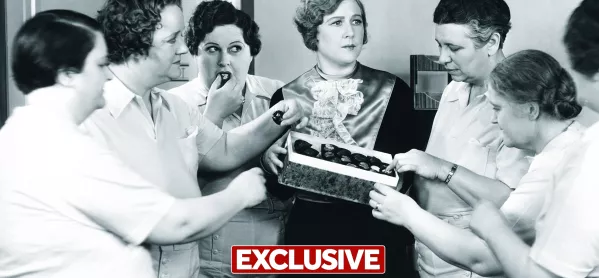The Department for Education is planning for “more incentives” to cover initial teacher training cold spots amid fears of trainee places being lost through the roll-out of ITT market reforms, Tes understands.
The DfE ITT policy team is working on the plans in response to apparent reluctance among current or potential providers to form partnerships, Tes has learned.
The move comes after “mostly” higher education institutions (HEI) told the DfE they were “unwilling” or “unable to partner” with other providers if they were not successful in the reaccreditation process, which the government has asked all providers to take part in in order to continue offering teacher training under its shake-up of the sector.
Last week, Tes analysis revealed fears that initial teacher education (ITE) provider “deserts” in parts of the country could lead to the loss of hundreds of teacher trainee places, after only a third of applicants passed the first round of reaccrediation in May.
The DfE has now admitted it may have to find a way to let more providers in or accept teacher training cold spots “temporarily”.
It has accepted that ”expansion and partnering is unlikely to be enough to match the existing provision” based on “initial feedback” from current and potential providers - even in a “better case” scenario in which all providers that missed out by one mark in the first round receive accreditation in round two, according to a DfE official.
In this scenario, the DfE “may need to provide more incentives for accredited providers to cover the cold spots developed, or find a way to let more providers in” or “accept any cold spots temporarily”, the official told Tes.
The new accreditation process for all ITE providers was first announced last year in what was seen as a controversial shake-up of the sector.
The process means providers that plan to continue providing ITT from 2024-25 have two chances to pass.
Teacher training: universities ‘unable’ to form partnerships
James Noble-Rogers, chief executive of Universities Council for the Education of Teachers (UCET), agreed that HEIs will be either “unwilling” or, because of internal and external regulatory requirements, “unable to partner with other organisations if they don’t retain their accreditation”.
Mr Noble-Rogers added that this “should come as no surprise to DfE because we have been telling them about it for some time”.
He said UCET had previously suggested that providers that “only narrowly failed to meet the criteria” should be “provisionally” accredited, allowing them to be “fast-tracked through round two”.
“At the end of the day, what DfE needs to do is make sure that as many existing providers are accredited as possible. Only then will sufficiency be secured. This may mean listening to the sector and being more flexible,” Mr Noble-Rogers added.
He also said it was “worrying” that the DfE’s “better case” scenario is that those missing out by just one point in round one will get through.
“Are they assuming that those who missed out by more than one point are not going to get through? Does this imply that they have already made up their minds about those providers?” he asked.
Last week, Mr Noble-Rogers warned that if the “deserts” remained after round two, schools in these areas “will not be able to recruit the early career teachers they need in order to teach their pupils”.
And he said that there was “no point” in the government saying that prospective teachers can “train somewhere else”, especially as trainees are “increasingly wanting” to train near to where they live due to “family”, “financial” and other reasons.
Right now, we are only part of the way through the process and the DfE will be publishing the data on accredited providers after the results of round two are made available.





